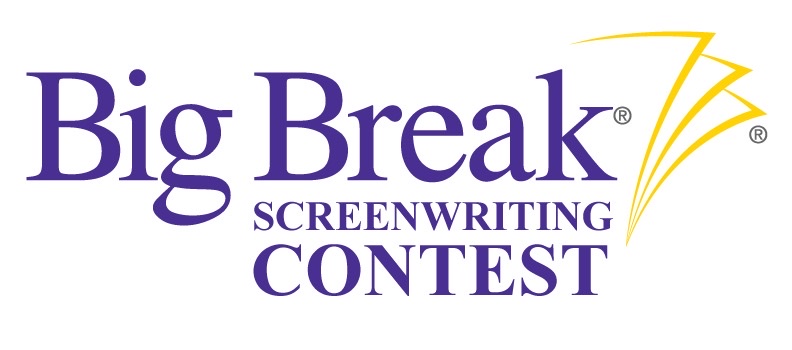The world of screenwriting can be notoriously difficult to break into, with countless aspiring writers vying for the attention of industry professionals. However, for many writers, the Big Break Screenwriting Contest has provided the opportunity to stand out and launch their careers. Founded by Final Draft, the leading screenwriting software provider, the contest has been a launching pad for numerous successful writers and filmmakers. In this blog post, we’ll explore the experience of participating in the Big Break Screenwriting Contest, from the application process to the benefits of winning. Whether you’re an aspiring writer or just interested in the world of screenwriting, this post will provide valuable insights into how the contest works and what it can do for your writing career.
What is The Big Break Screenwriting Contest?
The Big Break Screenwriting Contest is an annual competition for aspiring screenwriters, founded by Final Draft, the leading screenwriting software provider. Writers from all over the world are invited to submit their original screenplays in a range of categories, including feature film, television pilot, and short film.
Is The Big Break Screenwriting Contest Good?
The Big Break Screenwriting Contest is generally considered to be a reputable and valuable competition for aspiring screenwriters. The contest has a solid track record of launching the careers of successful writers and attracting the attention of industry professionals.
One of the benefits of the Big Break Screenwriting Contest is that it is open to writers from all over the world and accepts a wide range of genres and formats. This provides writers with a valuable opportunity to showcase their work to a global audience and receive feedback from industry professionals.
In addition, the prizes offered by the contest, including cash awards, industry exposure, and mentorship opportunities, can be extremely valuable for emerging writers looking to break into the industry.
Submission Guidelines and Categories
The submission guidelines and categories for the Big Break Screenwriting Contest can vary from year to year, but typically include a range of genres and formats. In the past, the contest has accepted submissions in categories such as feature film, television pilot, and short film, as well as in specific genres such as comedy, drama, horror, and action/adventure.
In general, submissions must be original works that have not been produced or sold prior to the submission deadline. The contest may also have specific formatting requirements, such as page count and font size, which writers must adhere to.
The contest typically accepts online submissions, with a submission fee that varies depending on the deadline and category. Early bird discounts may also be available for writers who submit their work before a certain date.
It’s important for writers to carefully review the submission guidelines for the current year’s contest and ensure that their work meets all of the requirements before submitting. Failure to follow the guidelines may result in disqualification, so it’s important to take the time to review and understand the rules.
Judging Process and Criteria
The judging process and criteria for the Big Break Screenwriting Contest typically involve several rounds of evaluation by industry professionals, including screenwriters, producers, and executives. In general, the contest uses a blind judging process, which means that submissions are evaluated without the judges knowing the identity of the writer.
The criteria used to evaluate submissions can vary depending on the category and format, but typically include factors such as plot, character development, dialogue, pacing, and originality. Judges may also consider factors such as marketability and production feasibility when evaluating submissions.
In the early rounds of the contest, judges may read a summary or logline of the submission to determine whether it advances to the next round. In later rounds, judges may read the full screenplay or pilot episode and provide detailed feedback and ratings.
In the final rounds, a panel of industry professionals may review the top submissions and select the winners based on a combination of their ratings and feedback. The judging process is typically rigorous and highly competitive, with only a small percentage of submissions advancing to the later rounds and winning prizes.
Big Break Screenwriting Contest Deadline
The deadline for the Big Break Screenwriting Contest varies from year to year, so it’s important to check the contest’s official website for the most up-to-date information. In the past, the deadline has usually been in the early fall, with submissions accepted from late spring to early fall. However, the exact dates can vary, so it’s important to check the official website for the current year’s deadline.
It’s also worth noting that the contest typically offers early bird discounts for writers who submit their work before a certain date, so it’s a good idea to plan ahead and submit your work early if possible.
Big Break Screenwriting Contest Review
The Big Break Screenwriting Contest has received positive reviews from both participants and industry professionals. Many writers have found the contest to be a valuable opportunity to gain exposure to the industry, receive feedback on their work, and launch their careers.
However, it’s worth noting that success in the contest is not a guarantee of success in the industry, and the quality of the writing and the writer’s ability to network and build relationships in the industry will be the key factors in determining success. Some participants have also expressed frustration with the contest’s submission fees, which can be a barrier for writers on a tight budget.
Overall, the Big Break Screenwriting Contest is considered to be a reputable and valuable competition for aspiring writers, and can provide a valuable platform for launching a career in screenwriting.
Related:

Leave a Reply